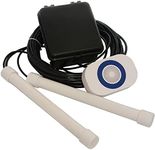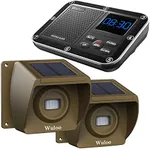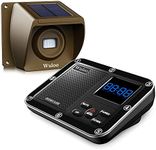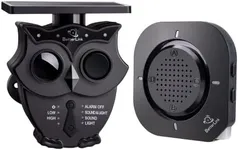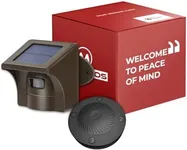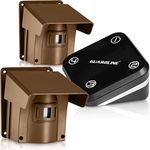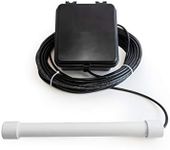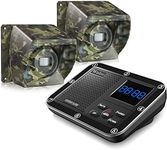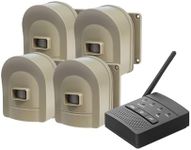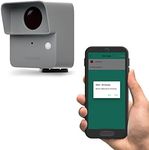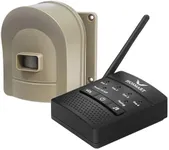Buying Guide for the Best Driveway Alarms
Choosing the right driveway alarm can make your home or property more secure by alerting you when someone or something enters your driveway. The best approach is to think about your specific needs: the size of your property, the type of activity you want to detect, and how you want to be notified. Understanding the key features will help you pick a system that fits your lifestyle and gives you peace of mind.Detection RangeDetection range refers to how far away from the sensor movement can be detected. This is important because it determines how much of your driveway or property will be covered by the alarm. Shorter ranges (up to 50 feet) are suitable for small driveways or areas close to your house, while medium ranges (50-200 feet) work well for average-sized driveways. Long ranges (over 200 feet) are best for large properties or long driveways. To pick the right range, measure the distance from where you want to place the sensor to the area you want to monitor, and choose a system that covers at least that distance.
Sensor TypeDriveway alarms use different types of sensors, such as motion sensors (PIR), magnetic sensors, or infrared beams. Motion sensors detect movement from people, animals, or vehicles, making them versatile but sometimes prone to false alarms from pets or wildlife. Magnetic sensors are designed to detect large metal objects like cars, so they are ideal if you only want to be alerted to vehicles. Infrared beam sensors create an invisible line that triggers the alarm when crossed, offering precise detection but requiring careful alignment. Choose the sensor type based on what you want to detect—people, vehicles, or both—and the likelihood of false alarms in your area.
Alert MethodThe alert method is how the system notifies you when the sensor is triggered. Common options include loud sirens, chimes, flashing lights, or notifications sent to your phone. Loud sirens and chimes are good for immediate, on-site awareness, while phone notifications are useful if you want to be alerted when you’re not at home. Some systems offer multiple alert options. Think about where you’ll be when you want to receive alerts and choose a system that matches your lifestyle.
Power SourceDriveway alarms can be powered by batteries, solar panels, or plugged into an electrical outlet. Battery-powered systems are easy to install anywhere but require regular battery changes. Solar-powered options are low-maintenance and eco-friendly, but they need to be placed where they get enough sunlight. Plug-in systems offer reliable power but are limited to locations near an outlet. Consider where you want to install the alarm and how much maintenance you’re willing to do when choosing the power source.
Weather ResistanceSince driveway alarms are usually installed outdoors, weather resistance is crucial. This refers to how well the device can withstand rain, snow, heat, and dust. Look for systems rated for outdoor use, often marked as weatherproof or waterproof. If you live in an area with extreme weather, make sure the alarm can handle those conditions. Picking a weather-resistant model ensures your alarm will work reliably year-round.
ExpandabilityExpandability means the ability to add more sensors or receivers to your system. This is important if you have a large property or want to monitor multiple areas. Some systems allow you to connect several sensors to one receiver, or add extra receivers in different rooms. If you think you might want to cover more areas in the future, choose a system that supports expandability.

